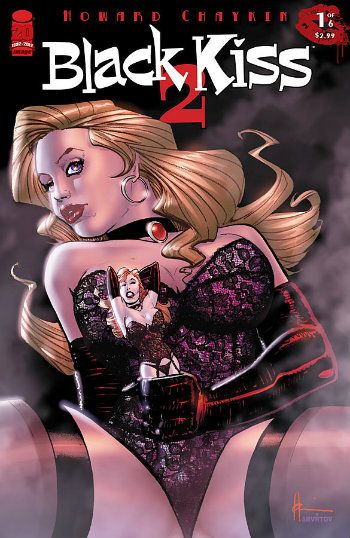Are you among the many people who read about a book being "banned" from ComiXology and assume that means it is banned and that you won't be able to purchase it? Or have you noticed that most of these books are actually readily available from the website (and wondered why on earth they're being called "banned", as I did)?
Inflammatory sensationalism is a great way to get people to read things. The way it works is that you publish crazy-sounding statements which are almost true and people read because they're worried. We've all seen it in places like the teasers ads for local TV news which say "Something in your home could be KILLING YOU! Watch the news in an hour for the full story...", but the actual story is far less exciting and ultimately the conclusion is that your home isn't killing you. While it might seem like harmless marketing on the part of the news show, for those of us watching, it is misleading and manipulative.
This is what journalists are doing when they write articles about some digital comic books being BANNED because they aren't available on the ComiXology Apple app. You can still buy them from ComiXology website, (which is ridiculously easy to use), you just can't buy them with the app. So how does this mean they're banned, except in the broadest, least logical sense of the word? If I want to buy a T-shirt and it isn't available in a store next door to my house, but it is available from a store across the street, it would be nonsensical of me to complain about it being unavailable. It would be even more nonsensical for news agencies to proliferate the story, and try to convince people that they could never buy that T-shirt. Despite all of this, it is exactly what so-called journalists do when they call a digital comic book "banned" just because they can't buy it from one source, but can easily buy it from another.
Unfortunately, it isn't just the hype-mongers who perpetuate this nonsense, after all, every journalist courts hysteria and click-throughs. A couple of weeks ago Print Magazine published an otherwise wonderful interview, but spoiled it all by titling it "Howard Chaykin on his lewd, depraved, banned graphic novels". The article originally (more on that later) began by asking Chaykin how he felt about his book being "banned by ComiXology". Nowhere did the reporter follow it up by explaining that Chaykin's supposedly banned book is available to purchase on ComiXology's website, but it isn't available through the app. Obviously I'm absolutely delighted that Chaykin was interviewed, but I'm extremely disappointed in Print Magazine's fact checking, and their rush to jump on the tedious sensationalist bandwagon of crying "banned" about books which simply aren't. Now back to that beginning; In the two weeks since the interview went live, the author has edited the article to add a paragraph at the beginning of the article to qualify that this "ban" means that you can't buy the book for the iPad or iPhone (i.e. if you have those devices you cannot buy the book), which still is not true. You can buy Black Kiss II for an iPad or iPhone (or any other device) from the ComiXology website. The fact that he has stooped to add that this "ban" is "much documented" is akin to saying "other places print this misleading language and so we can too."
All of this would simply be yet another example of inflammatory misinformation, but unfortunately it is misleading in that it causes people to shy away from even attempting to obtain these so-called "banned" books. When I was told about the Chaykin article, it was in the context of a conversation about what a shame it was that we couldn't buy his books digitally (which I hastily pointed out wasn't true). One of the comic books which I am graphic designer on is called "Sex". From the title you can imagine that this is a book aimed at a mature audience, and I personally have no problem with the fact that you can't buy it via the app (since on the website, there is another layer of security to ask people's age). Unfortunately, because some journalists have named it as one of these so-called banned books, people don't even know that they can easily get it from the ComiXology website (and have even complained to me about it) - they read that the book is banned and believe it, assuming it is unavailable digitally. However, a quick glance at the ComiXology website shows "Sex" as readily available for purchase.
When did people first start talking about "banned" books which were actually readily available on the ComiXology website? It seems like a relatively recent phenomenon. Before some unhelpful reporter coined this misnomer what did we call these so-called "banned" books? We probably just called them mature-reader books, which is what they are. More often than not, when someone writes about a digital book being "banned" because it's not on the app, I have immediately found it highlighted on the ComiXology home page with an attractive graphic as if to let people know that "yes, actually we do sell it, sorry about all the lies you've been reading." I wish there were a way to see through every bit of inflammatory bollocks which is published in the name of "news", but at least in this instance don't believe the hype - if there's a book you want, check the website first.



